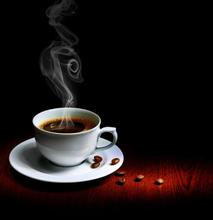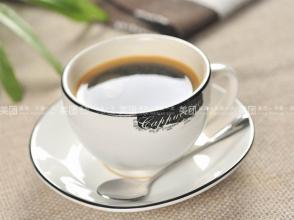Fragrant Jamaican Coffee Flavor and Taste introduction to Fine Coffee in Manor area
Columbus came to Jamaica in 1494, and in 1509 Spain declared Jamaica its colony and renamed it Santiago. Spain's slave policy towards the indigenous peoples led to the extinction of the Arawaks on the island as a result of war, disease and enslavement. To make up
As a labor force, Spain began to sell slaves from Africa to Jamaica since 1517, causing blacks to gradually become the dominant nation of Jamaica. In 1538, the Spanish founded the Spanish city as the capital of Jamaica.
Since the late 16th century, Jamaica has been repeatedly attacked by pirates from France, England, the Netherlands and other countries. In May 1655, a British fleet led by William Bing and Robert Venables occupied Jamaica. They immediately invited pirates to the island's port of Loire to help defend the Spaniards from possible counterattacks. Between 1657 and 1658, the Spaniards fought back from Cuba and failed. In the decades after 1872, Jamaica's economy gradually prospered, but its social and cultural development was always suppressed by the colonial authorities. Especially during the Great Depression, all walks of life in Jamaica were very dissatisfied with the depressed social situation. In 1938, workers in Jamaica revolted. After that, the colonial authorities were forced to grant local autonomy. In 1944, universal suffrage was first held in Jamaica.
In 1958, Jamaica joined the Union of the West Indies, but in 1961, voters rejected the Union Treaty, which led to Jamaica's withdrawal.
The "secret" of why Blue Mountain coffee tastes pure: their coffee trees are all on rugged hillsides, and the picking process is so difficult that non-local skilled women are simply unable to do it. It is very important to choose the right ripe coffee beans when picking. Immaturity or ripeness will affect the quality of the coffee. The picked coffee beans are shelled on the same day, and then let them ferment for 18 hours. After that, the coffee beans were cleaned and screened. After that
The drying process must be carried out on the cement floor or on a thick blanket until the humidity of the coffee beans drops to 12% 14%. And then store it in a special warehouse. Take it out and roast when needed, then grind it into powder. These procedures must be strictly controlled, otherwise, the quality of coffee will be affected. When it comes to Jamaica, everyone's eyes immediately brighten because it produces the best "Jamaican Blue Mountain Coffee" (Jamaica Blue Mountain) in the world. We absolutely believe that Jamaica Blue Mountain Coffee is the best coffee, its acid, sugar, alcohol and bitterness are well balanced, fragrant and smooth to drink, but its price is so high that although it is worth a try, there is no need to be fascinated by it. Because other selected coffee also has its own characteristics, and the taste is delicious, the price is also reasonable, this is the good coffee in our life.
The earliest "Jamaican Blue Mountain" refers to the coffee produced by "Warren Ford Farm" and "Silver Hill Farm", with the former of the best quality; today, the Jamaican Blue Mountain refers to coffee beans growing in the Blue Mountain area (more than 1000 meters high) east of Kingston, the capital of Jamaica. Now Mawei is the largest manor, its barrel is printed with M.B.C.F, and its products are often found in Taiwan. The quality control of the Blue Mountains in Jamaica is very strict, and the certification work is carried out by the government's "Coffee Industry Committee".
Coffee beans that generally grow at low elevations and other areas can only be called "Jamaican mountain beans" or "Jamaican waterwashed beans". Compared with the Jamaican Blue Mountains, they have a lot of flavor, but, these producing areas are twice the size of the real blue mountain areas, and the output accounts for 75% of the country's output, so when you buy Jamaican coffee, don't think you bought blue mountain coffee.
Because the Jamaican Blue Mountain is so famous, there are fake Blue Mountain Coffee on the market, or simply called "Blue Mountain Coffee". Basically, this is a comprehensive product prepared by the store. there may not be a real Jamaican blue bean in it.

Important Notice :
前街咖啡 FrontStreet Coffee has moved to new addredd:
FrontStreet Coffee Address: 315,Donghua East Road,GuangZhou
Tel:020 38364473
- Prev

Introduction of Panamanian Kasha Coffee with various flavors and characteristics of Fine Coffee in Manor
In September 1977, Pakistan and the United States signed the Panama Canal Treaty (also known as the Torrijos-Carter Treaty). [5] in the general election in Panama in May 1989, both the ruling party and the opposition party claimed victory, so the election result was invalid. With the good offices of the Organization of American States, Rodriguez became interim president on August 31. Noriega, who opposes the US occupation, was appointed head of government on December 15th.
- Next

Introduction to the characteristics and varieties of boutique coffee beans in Ethiopian coffee flavor and taste manor
Columbus came to Jamaica in 1494, and in 1509 Spain declared Jamaica its colony and renamed it Santiago. Spain's slave policy towards the indigenous peoples led to the extinction of the Arawaks on the island as a result of war, disease and enslavement. As a labor force, Spain began to sell slaves from Africa to Jamaica since 1517, causing blacks to gradually become Jamaica.
Related
- Detailed explanation of Jadeite planting Land in Panamanian Jadeite Manor introduction to the grading system of Jadeite competitive bidding, Red bid, Green bid and Rose Summer
- Story of Coffee planting in Brenka region of Costa Rica Stonehenge Manor anaerobic heavy honey treatment of flavor mouth
- What's on the barrel of Blue Mountain Coffee beans?
- Can American coffee also pull flowers? How to use hot American style to pull out a good-looking pattern?
- Can you make a cold extract with coffee beans? What is the right proportion for cold-extracted coffee formula?
- Indonesian PWN Gold Mandrine Coffee Origin Features Flavor How to Chong? Mandolin coffee is American.
- A brief introduction to the flavor characteristics of Brazilian yellow bourbon coffee beans
- What is the effect of different water quality on the flavor of cold-extracted coffee? What kind of water is best for brewing coffee?
- Why do you think of Rose Summer whenever you mention Panamanian coffee?
- Introduction to the characteristics of authentic blue mountain coffee bean producing areas? What is the CIB Coffee Authority in Jamaica?

